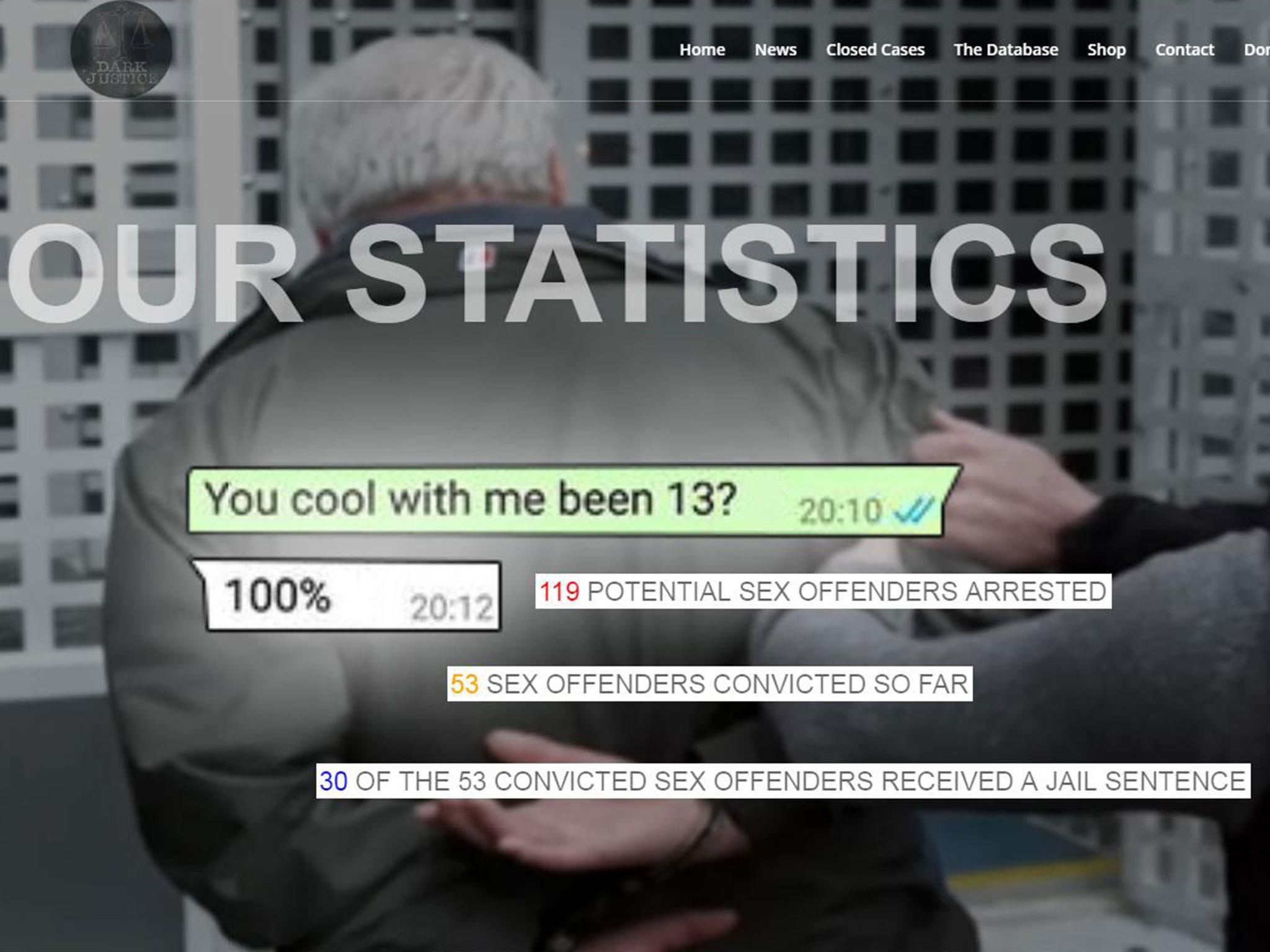Paedophile hunters ‘could jeopardise criminal proceedings’, study warns
At least one man has killed himself after being subject to a string operation by ‘vigilantes’

So-called paedophile hunters could jeopardise criminal proceedings and cause prosecutions of child abusers to fail, a report has warned.
Research by the University of East Anglia said the “vigilante groups” were using tactics that bypassed the safeguards that must be used by law enforcement agencies.
It was published ahead of a landmark Supreme Court judgment next month, which will decide whether paedophile hunter groups and the way police have used their evidence violates the targets’ privacy.
The case was brought by Mark Sutherland, who was convicted after a group called Groom Resisters Scotland posed as a 13-year-old boy on the Grindr app.
The tactic is frequently used by similar outfits, who pose as children online and converse with targets, before arranging a meeting and filming the encounter.
They frequently report the alleged crime to the police, but not before posting footage of the encounter on social media channels or livestreaming it.
Dr Joe Purshouse, a lecturer at the University of East Anglia’s law school, said: “The tactics these groups use are incompatible with the rules of criminal evidence and procedure, and may damage the proper administration of justice.
“In short, their activities may jeopardise potential criminal proceedings and lead to failed prosecutions of potentially dangerous offenders.”
Dr Purshouse said paedophile hunter groups should not be allowed to “bypass” the safeguards that govern police, adding: “English law is failing to adequately regulate the activities of paedophile hunters. In fact, this research found that more investigatory discretion is afforded to paedophile hunters than to state law enforcement agencies.”
The research, published on Thursday in the Journal of Law and Society, found that as well as criminal prosecutions, the activities had led to cases of mistaken identity seeing innocent people smeared.
It said there had been “sustained social media attacks on the alleged perpetrators and their family members” and affected a defendant’s right to a fair trial.
The activity is not against the law in itself but has occasionally resulted in alleged assaults, while some people targeted have taken their own lives.
Dr Purshouse accused some police forces of “turning a blind eye” to how evidence is gathered in such cases and offering tacit approval.
He said that paedophile hunters’ activities amounted to “manufacturing criminality”, adding: “It is the responsibility of the state to administer punishments for those who have committed crimes, and not individual citizens.”
Several people have been arrested in connection with paedophile hunter operations in the past.
Last year, six members of the Predator Exposure group were cleared by a jury at Leeds Crown Court of charges including false imprisonment and common assault after prosecutors said they “overstepped the mark” when they confronted two men.
In 2017, David Baker, 43, took his own life days after he was confronted by the Southampton Trap group after allegedly arranging to meet a 14-year-old child in a supermarket car park.
The coroner at his inquest ruled that social media posts by the vigilante group were a “causative factor” in his suicide.
London-based criminals have used paedophile hunter-style stings to blackmail people, marching them to ATMs to extort money, and in some cases child abusers have claimed to be activists when caught with indecent images.

Earlier this month, police said they expected a surge in vigilante action as coronavirus lockdown measures ease.
Around 90 named groups are thought to be active in the UK, carrying out more than 100 undercover sting operations a month before restriction of movement rules were introduced at the end of March.
But during the first month of the lockdown just 16 incidents were recorded, with 15 of those limited to “e-activism”, where evidence gathered in chat logs is passed to police.
Assistant chief constable Dan Vajzovic, the National Police Chiefs' Council (NPCC) lead for online child sex exploitation activist groups, said so-called paedophile hunters were still active and may be sitting on about 160 cases.
“The online threat persists, and we are concerned that activists may be storing up incidents to act upon once lockdown measures are released,” he added.
“Activist groups can produce some positive results but our overall assessment is they are more harmful than they are good.
“If they carry out activities and pass us material we will investigate and we encourage them to pass material to us at as early a stage as possible.”
Last year, the NPCC’s head of child protection accused groups of being driven by “seeking infamy through the number of hits they get, the number of likes they get, the number of people that view their livestreams”.
Chief constable Simon Bailey added: “I can’t deny they’ve led to convictions, but they’ve also led to people being blackmailed, people being subject of grievous bodily harm the wrong people being accused, people committing suicide as a result of interventions, family lives being completely destroyed, in the name of what? Facebook likes.”
In 2017, he had said forces would “potentially have to look at” working with networks of paedophile hunters.
